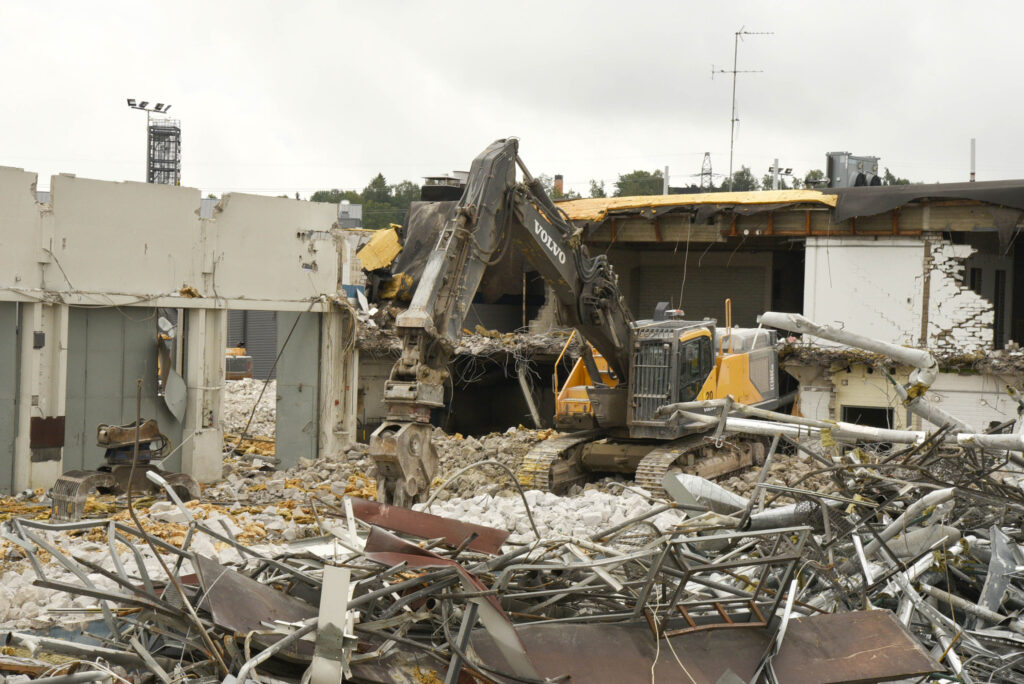Products that are dismantled from a building become waste, the use of which as a secondary raw material becomes expensive. The European Commission is seeking to respond to these challenges, among others, with a new circular economy regulation, the preparation of which is currently underway.

The Circular Economy Regulation aims to improve the EU's economic security and competitiveness, while promoting more sustainable and circular production models and decarbonisation. The Commission aims to facilitate the free movement of reusable products, products made from secondary raw materials and waste. It also aims to increase the supply of and create demand for high-quality recycled materials in the internal market.
The EU is dependent on many imported raw materials, resource efficiency is insufficient and the environmental impacts of a linear economy are not included in prices. However, the transition to a circular economy has been very slow and the recycling rate has remained at around 11% for the last 15 years.
The demand for secondary raw materials is modest in terms of both quantity and quality. The reasons can be found in both legislation and economics. Very often, secondary raw materials are more expensive and of lower quality, so they cannot compete with virgin raw materials. Economic incentives, legislative changes and conformity assessment methods would be needed to increase the use of secondary raw materials. The internal market for secondary raw materials and waste is very fragmented, which leads to a lack of economies of scale in the circular economy.
In an effort to reduce costs, emissions and the use of natural resources
Challenges arise firstly from the different interpretations of EU legislation by Member States, which means that, for example, products dismantled from a building become waste, but legally converting the waste back into valuable secondary raw materials becomes expensive for companies. Secondly, the higher price of secondary raw materials does not correlate with lower environmental impacts. Neither sellers nor consumers can fully trust the information they receive nor compare information available from different sources.
Mixed waste streams lead to the fact that usable materials also end up incinerated. The Commission aims to solve these problems with its Circular Economy Regulation. Promoting the circular economy helps to achieve climate goals and creates economic growth through new jobs.
The Commission has estimated that the transition to a circular economy would reduce manufacturers' costs, of which materials account for a larger share than labor and energy.
According to the Commission's calculations, a circular economy would cut 20-25% of the greenhouse gas emissions needed to achieve climate neutrality by 2050. The reduction would focus in particular on emissions from land use, energy and industry, and would reduce the need for carbon capture. Consumers would benefit from lower living costs through repairs and more sustainable products.
The Circular Economy Regulation also applies to construction to a large extent. The construction sector has a great potential for reducing carbon dioxide emissions at EU level. The construction sector accounts for 11% of EU GDP, making it the largest industrial sector in the EU. Construction is responsible for 40% of carbon dioxide emissions, and in the EU, an estimated 40% of construction and demolition waste is recycled or reused.
The public consultation is underway – now is the time to take a stand
The Commission's proposal for a new regulation is due to be presented next year. A public consultation on the preparation of the regulation is now open until 6.11 November.
Now is the time to have an impact! What kind of legislation would we like to see from Brussels? What would get builders excited about the circular economy and what would promote the use of recycled materials in the manufacture of products? What kind of additional regulation do we not want the Commission to draft? We now have the opportunity to have a discussion about the direction of future regulation. Comment directly or send a message to the Chief Sustainability Officer To Kirsi Martinkauppi.
More information

Kirsi Martinkauppi
Sustainability Director
kirsi.martinkauppi@rt.fi + 358 50 582 2464Rakennustuoteollisuus RTT ry